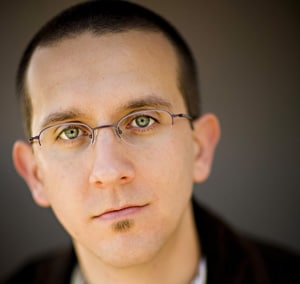
Heath Haussamen
We’ve watched several New Mexico judges go down in flames recently. I have to wonder who around our judges is holding them accountable when they are out of line and offering help when they need it.
We all remember when Ted Haggard, who was president of the National Association of Evangelicals, was forced to resign all leadership positions because of a scandal involving same-sex prostitution and illegal drug use.
I’ve been around evangelical culture long enough to know that many pastors operate without accountability. Many people assume their religious leaders are doing OK in their personal lives because they’re the ones teaching us how to live better lives, so no one checks in with their leaders to see how they’re doing.
Ego also gets in the way. Some pastors feel like they can’t ask for help because they’re not supposed to be the ones struggling, or they refuse to seek help because they fear what would happen if people learned their secrets.
It’s no wonder, then, that many of them crash and burn in a very public way, like Haggard did several years ago.
Religious leaders sit high up on pedestals, and it can be lonely at the top.
Judges going down in flames
I’ve been thinking about that lately as we’ve watched several New Mexico judges go down in flames.
There was Robert E. Robles, a man who served with integrity for nearly 18 years as a district and appellate judge before he ran a red light in Albuquerque earlier this year while speeding and drunk and nearly crashed his car into a police officer’s vehicle. That horrible choice ended his career.
As someone who knew Robles long before the DWI, I was saddened to see his career destroyed by a single act. But once that act was committed, there was no other option.
There was Albert “Pat” Murdoch,” who was a criminal judge in Albuquerque for 26 years and presided over many high-profile cases before being charged last month with raping a prostitute and, of course, resigning.
Though Murdoch hasn’t been convicted, and there are questions about whether the rape charge will hold up, the fact that a man who judged others was apparently having sex with a prostitute – which is illegal – is such an egregious violation of the public trust that it had to end his judicial career.
There’s also Mike Murphy, a Las Cruces district judge on suspension while he fights bribery charges related to soliciting a bribe and trying to make a deal with another judge over who would be the court’s chief judge.
Murphy claims innocence, but the fact remains that, even if he’s not guilty of bribery, he told others that he paid for his appointment and said applicants who wanted judgeships had to do the same.
Whether he committed a crime or is simply guilty of braggadocio, Murphy has tainted the judiciary’s integrity. Most I’ve talked with would be surprised to see him ever return to the bench.
Judges are humans
We place our judges on pedestals just like we do our religious leaders. I don’t know what was going on in the personal lives of Robles, Murdoch and Murphy, but I have to ask: Did any of Judge Robles’ friends see a meltdown coming? Did they offer to help? Was he willing to ask for help?
If not, would such support have helped Robles through whatever was going on? Would he still be an appellate judge today?
What about Murdoch? How did he reconcile his personal actions with his day job? Did anyone know or have reason to suspect something wasn’t right?
Other judges knew about Murphy’s outrageous claims but didn’t report the potential ethics violations to the Judicial Standards Commission, even though they should have done just that. Who was around to hold Murphy accountable as he shot his mouth off? Was he aware that he had a problem, and did he seek help?
I’m not saying for a moment that these judges aren’t responsible for their actions. They are. If they needed help upholding the standards of their offices, they had a duty to seek that help.
But the reality is that they’re humans and, just like the rest of us, are capable of making spectacular mistakes. We know little or nothing about their personal lives. For example, Robles clearly had a breaking point, but don’t we all?
Who is willing to help?
There are many excellent judges in New Mexico, but even they need help from time to time. Who around them is willing to hold them accountable when they step out of line and support them when they need help? Will those judges ask for help when they need it?
I’ve covered enough judicial scandal over the past several years to know there are also some bad apples in the judiciary. Who is holding them accountable? Why didn’t the judges who knew about Murphy’s bribery claims report him? Which other current judges need to be held accountable for ethical misdeeds? Who will make sure that happens?
I write a lot about the need for structural changes to improve government. This isn’t one of those columns. This is about how people can individually improve government. If we did a better job of recognizing that judges are human beings like the rest of us, and offered help to those with whom we’re close before it’s too late, we might see fewer good judges fall. If we did a better job of weeding out the bad judges, we’d have fewer of them committing acts that erode public confidence in the judiciary.
That would mean a judiciary with more integrity, one that does a better job of earning the public’s trust. That’s a goal we should all seek.
This article has been updated to clarify that Murphy is charged with soliciting a bribe.